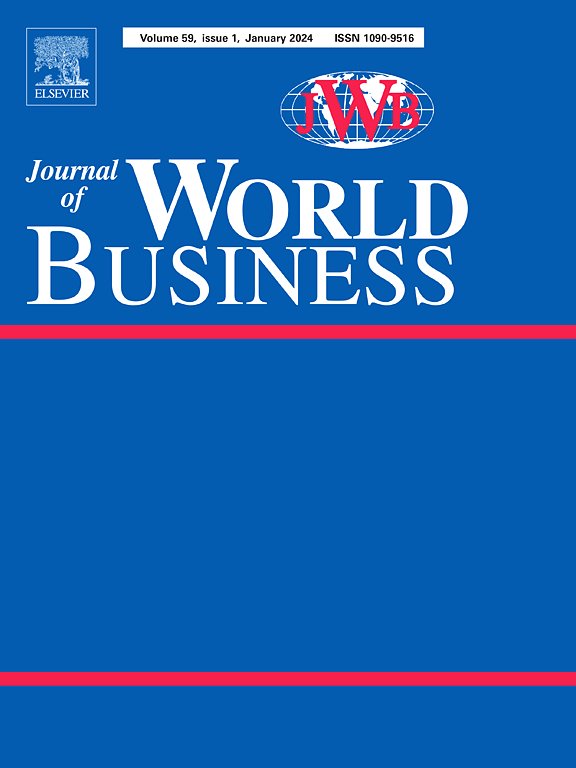Unveiling signaling processes in early-stage cross-border investment: Evidence from South African entrepreneurs and European business angels
IF 8.8
1区 管理学
Q1 BUSINESS
引用次数: 0
Abstract
The ever-increasing internationalization and global interconnectedness of entrepreneurship are attracting considerable scholarly attention. In particular, the understanding of the internationalization of early-stage financing, such as business angel investment in cross-border contexts, is gaining relevance. Here, however, the informal nature, the newness of the ventures, and the cross-border environment lead to severe information asymmetries, which make the initiation of collaboration particularly complex. To provide an understanding of this phenomenon, in our qualitative study, we look at how signaling as a potential solution to information asymmetry unfolds in the context of early-stage cross-border collaboration between South African founders and European business angels. Based on our findings, we propose a model that uncovers the underlying cognitive mechanisms through which the early-stage cross-border context influences signaling processes. Moreover, we identify three potential outcomes of these interpretive processes: signal appreciation, signal depreciation, and signal flip, and suggest two potential strategies to mitigate the effects of cognitively biased signal interpretation. We contribute to the broader signaling literature and signaling in international entrepreneurship literature.
揭示早期跨境投资的信号过程:来自南非企业家和欧洲商业天使的证据
企业家精神的日益国际化和全球互联性引起了学术界的广泛关注。特别是,对早期融资国际化的理解,如跨境背景下的商业天使投资,正变得越来越重要。然而,这里的非正式性质、企业的新颖性和跨境环境导致了严重的信息不对称,这使得合作的启动特别复杂。为了理解这一现象,在我们的定性研究中,我们着眼于信号作为信息不对称的潜在解决方案如何在南非创始人与欧洲商业天使之间早期跨境合作的背景下展开。基于我们的研究结果,我们提出了一个模型,揭示了早期跨界背景影响信号传导过程的潜在认知机制。此外,我们确定了这些解释过程的三种潜在结果:信号增值、信号贬值和信号翻转,并提出了两种潜在的策略来减轻认知偏见信号解释的影响。我们为更广泛的信号文献和国际创业文献中的信号做出了贡献。
本文章由计算机程序翻译,如有差异,请以英文原文为准。
求助全文
约1分钟内获得全文
求助全文
来源期刊

Journal of World Business
BUSINESS-
CiteScore
16.50
自引率
11.20%
发文量
73
期刊介绍:
The Journal of World Business holds a distinguished position as a leading publication within the realm of International Business. Rooted in a legacy dating back to 1965, when it was established as the Columbia Journal of World Business, JWB is committed to disseminating cutting-edge research that reflects significant advancements in the field. The journal actively seeks submissions that propel new theoretical frameworks and innovative perspectives on International Business phenomena. Aligned with its domain statement, submissions are expected to possess a clear multinational, cross-border, or international comparative focus, while remaining pertinent to the study of management and organizations. JWB particularly encourages submissions that challenge established theories or assumptions, presenting pioneering or counterintuitive findings. With an inclusive approach, the journal welcomes contributions from diverse conceptual and theoretical traditions, encompassing allied social sciences and behavioral sciences. Submissions should either develop new theories or rigorously test existing ones, employing a variety of qualitative, quantitative, or other methodological approaches. While JWB primarily caters to scholars and researchers, it values contributions that explore implications for Multinational Enterprises and their management, as well as ramifications for public policy and the broader societal role of business.
 求助内容:
求助内容: 应助结果提醒方式:
应助结果提醒方式:


